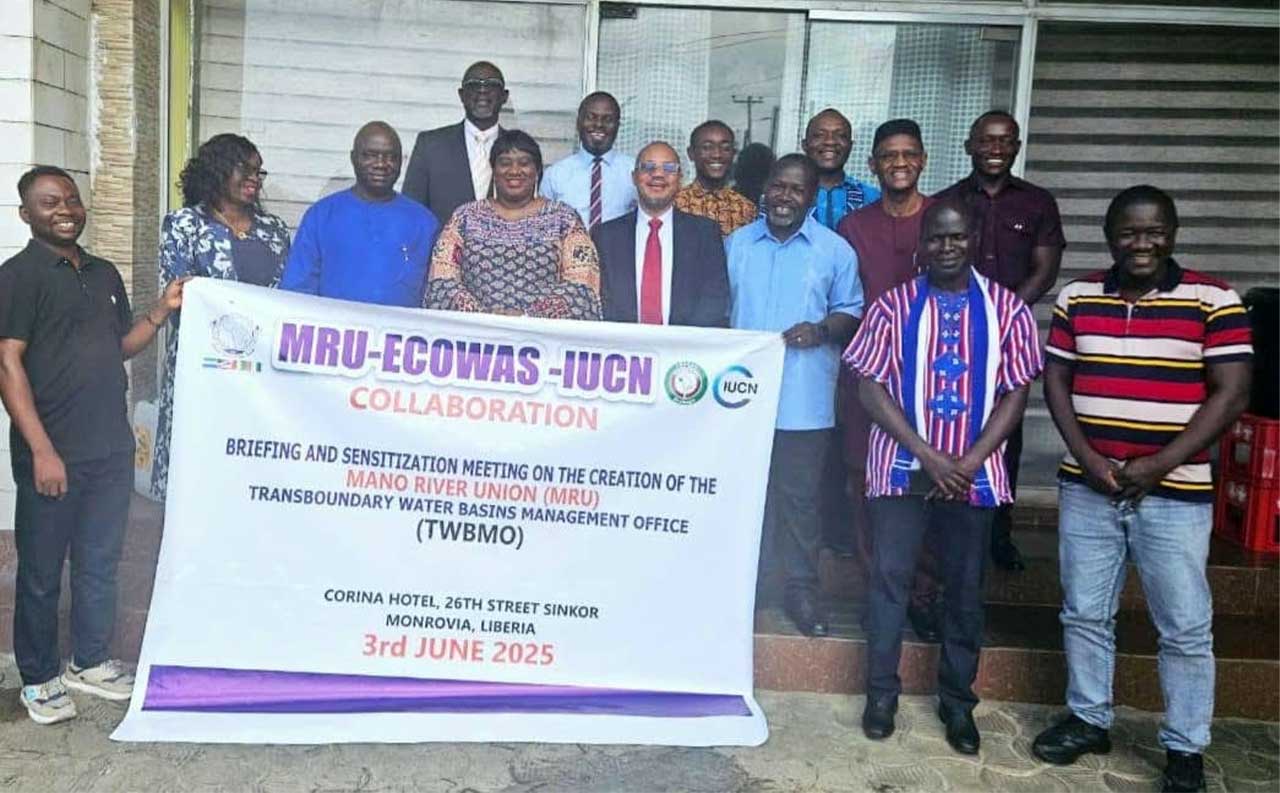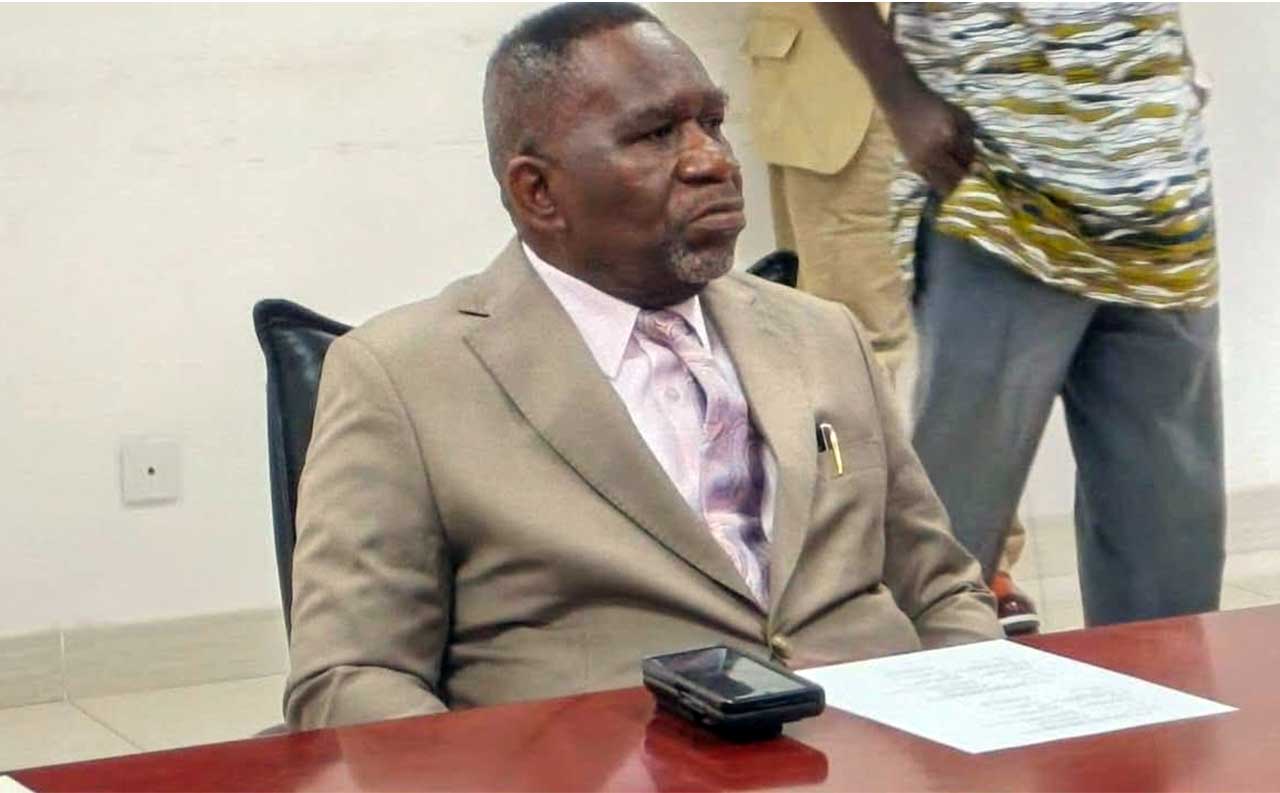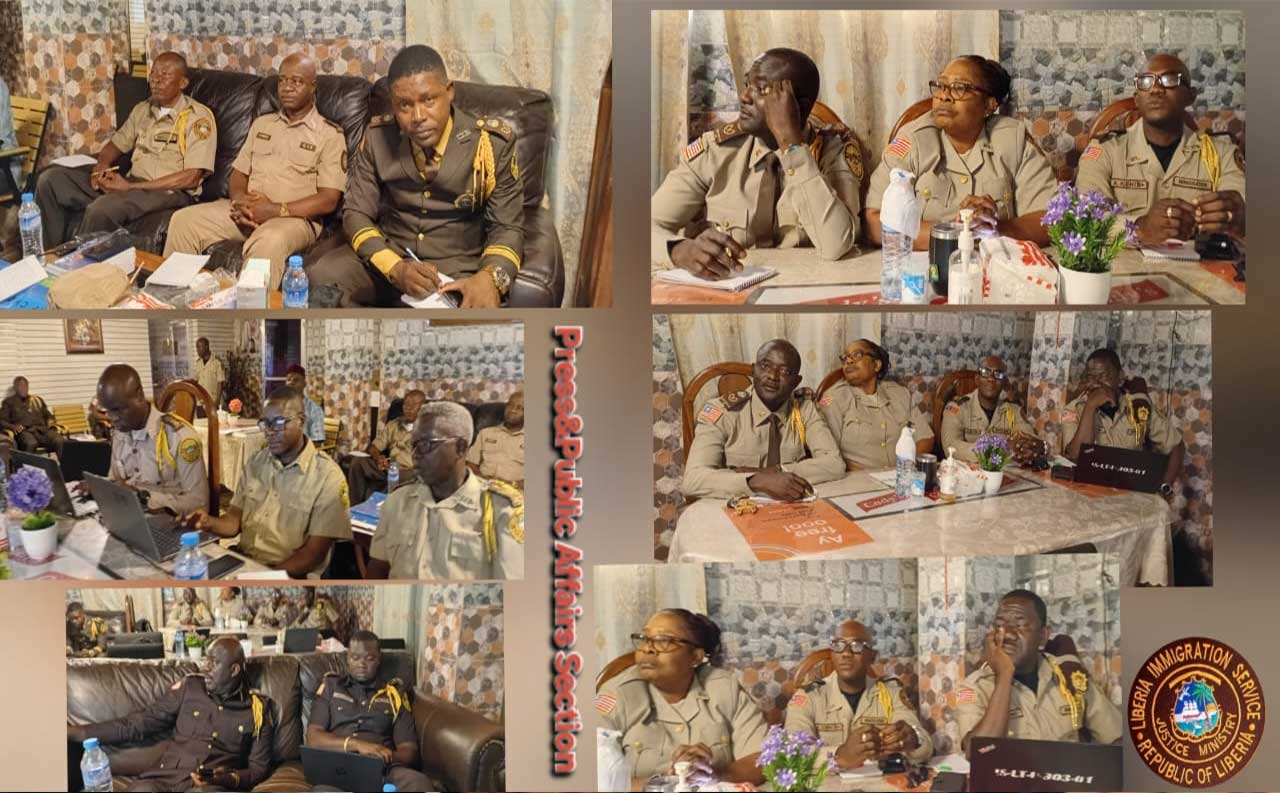The Mano River Union (MRU) convened a high-level sensitization meeting to engage stakeholders from its four member states on the establishment of the MRU Transboundary Water Basins Management Office (TWBMO).
According to a press release dated June 4, 2025, the meeting brought together representatives from the water, forestry, environmental, and natural resource management sectors of Liberia, Sierra Leone, Guinea, and Côte d’Ivoire.
The meeting was held under the theme “Sustainable Water Governance”, and the session aimed to foster dialogue and strategic coordination toward the creation of a permanent institutional mechanism to oversee the sustainable management of ten transboundary river basins shared across the subregion.
In her opening remarks, Madam Ama Gborie Foday, Deputy Secretary-General of the MRU, welcomed participants and emphasized the shared commitment of member states to coordinate natural resource management.
“We share a common concern and a common purpose — to ensure the sustainable and coordinated management of our shared natural resources, particularly the ten transboundary river basins that stretch across our borders,” she stated.
She said the basins are not only ecological treasures but also hold immense economic, social, and strategic value for communities and future. Madam Gborie highlighted that the absence of a unified regional mechanism has left these critical ecosystems vulnerable to degradation and competing interests.
She emphasized that the creation of the TWBMO is both timely and necessary, providing a platform for collaboration, joint decision-making, and policy harmonization aligned with national priorities and regional frameworks such as ECOWAS and the MRU Strategic Plan.
Mohammed Ali, Managing Director of the Liberia Water and Sewer Corporation, described the initiative as a pivotal step toward sustainable development and regional cooperation. He said water is not just a natural resource but a lifeline for livelihoods, energy, agriculture, and biodiversity.
“The Government of Liberia recognizes the immense economic and social value in protecting and jointly managing our shared river basins,” he added.
This initiative is steered by the MRU Secretariat in collaboration with ECOWAS and IUCN—has the potential to address both ecological threats and economic disparities across borders.
He further reaffirmed Liberia’s full commitment to the process, pledging national support for the operationalization of the TWBMO and efforts to harmonize national and regional priorities.
Participants at the meeting agreed that the event reaffirmed the collective commitment of MRU member states to advancing regional integration, environmental sustainability, and peacebuilding. The dialogue served as a platform for open consultation and joint planning, and it reinforced the importance of local ownership in the development of the TWBMO.
As the MRU continues to champion cross-border collaboration, the proposed Transboundary Water Basins Management Office is set to become a cornerstone for water security, regional peace, and shared prosperity across West Africa.



